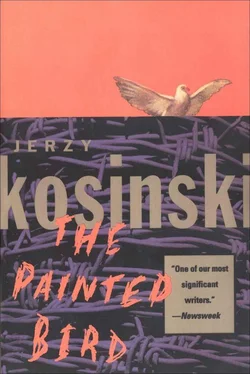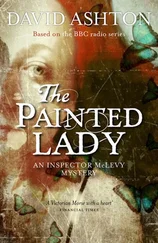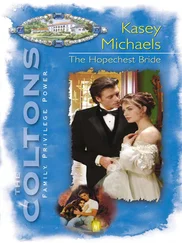Jerzy Kosiński - The Painted Bird
Здесь есть возможность читать онлайн «Jerzy Kosiński - The Painted Bird» весь текст электронной книги совершенно бесплатно (целиком полную версию без сокращений). В некоторых случаях можно слушать аудио, скачать через торрент в формате fb2 и присутствует краткое содержание. Год выпуска: 1965, ISBN: 1965, Жанр: Детская проза, на английском языке. Описание произведения, (предисловие) а так же отзывы посетителей доступны на портале библиотеки ЛибКат.
- Название:The Painted Bird
- Автор:
- Жанр:
- Год:1965
- ISBN:978-0-8021-9575-3
- Рейтинг книги:4 / 5. Голосов: 1
-
Избранное:Добавить в избранное
- Отзывы:
-
Ваша оценка:
- 80
- 1
- 2
- 3
- 4
- 5
The Painted Bird: краткое содержание, описание и аннотация
Предлагаем к чтению аннотацию, описание, краткое содержание или предисловие (зависит от того, что написал сам автор книги «The Painted Bird»). Если вы не нашли необходимую информацию о книге — напишите в комментариях, мы постараемся отыскать её.
The Painted Bird — читать онлайн бесплатно полную книгу (весь текст) целиком
Ниже представлен текст книги, разбитый по страницам. Система сохранения места последней прочитанной страницы, позволяет с удобством читать онлайн бесплатно книгу «The Painted Bird», без необходимости каждый раз заново искать на чём Вы остановились. Поставьте закладку, и сможете в любой момент перейти на страницу, на которой закончили чтение.
Интервал:
Закладка:
He buried the spent cartridges under the moss and removed all traces of our presence. Then we walked toward the camp, where we could hear engines being tested by mechanics. We got back in unnoticed.
In the afternoon, when the other men were on duty, Mitka quickly cleaned the rifle and the sight and replaced them in their sheaths.
That evening he was mild and cheerful as before. In a sentimental voice he sang ballads about the beauty of Odessa, about gunners who, with a thousand batteries, were avenging the mothers who had lost their sons in the war.
The soldiers sitting near sang the chorus. Their voices carried loud and clear. From the village came the faint, steady tolling of the funeral bells.
18
It took me several days to become reconciled to the idea of leaving Gavrila, Mitka, and all my other friends in the regiment. But Gavrila was very firm in explaining that the war was ending, that my country had been fully liberated from the Germans and that, according to regulations, lost children had to be delivered to special centers where they would be kept until it was determined if their parents were still alive.
I looked at his face while he was telling me all these things and held back my tears. Gavrila also felt uneasy. I knew that he and Mitka had discussed my future, and if there had been any other solution they would have found it.
Gavrila promised that if no relatives claimed me within three months after the end of the war, he would take care of me himself and would send me to a school where they would teach me to speak again. In the meantime he urged me to be brave and to remember everything I had learned from him and to read Pravda, the Soviet newspaper, every day.
I was given a bag full of gifts from the soldiers and books from Gavrila and Mitka. I put on a Soviet Army uniform which was made especially for me by the regimental tailor. In a pocket I found a small wooden pistol with a picture of Stalin on one side and Lenin on the other.
The moment of parting had come. I was going away with sergeant Yury, who had some military business in the town where there was a center for lost children. This industrial city, the country’s largest, was where I had lived before the war.
Gavrila made certain that I had all my things and that my personal file was in good order. He had assembled in it all the information I had given him concerning my name, previous place of residence, and the details I remembered about my parents, my hometown, our relatives and friends.
The driver started the engine. Mitka patted me on the shoulder and urged me to uphold the honor of the Red Army. Gavrila hugged me warmly, and the others shook hands with me in turn as though I were a grownup. I wanted to cry but I kept my face straight and laced tight like a soldier’s boot.
We started for the station. The train was packed with soldiers and civilians. It stopped often at broken-down signals, went on and stopped again between stations. We passed bombed-out towns, deserted villages, abandoned cars, tanks, guns, airplanes with their wing and tail surfaces cut away. On many stations ragged people ran along the tracks, begging for cigarettes and food, while half-naked children stared openmouthed at the train. It took us two days to reach our destination.
All the tracks were being used by military transports, Red Cross carriages, and open cars loaded with army equipment. On the platforms crowds of Soviet soldiers and ex-prisoners in a variety of uniforms jostled along with limping invalids, shabby civilians, and blind people who tapped the flagstones with their canes. Here and there nurses directed emaciated people in striped clothes; the soldiers looked at them in sudden silence—those were the people saved from the furnaces who were returning to life from the concentration camps.
I clutched Yury’s hand and looked into the gray faces of these people, with their feverishly burning eyes shining like pieces of broken glass in the ashes of a dying fire.
Nearby a locomotive pushed a gleaming railcar to the center of the station. A foreign military delegation emerged in colorful uniforms and medals. An honor guard quickly formed and a military band struck up an anthem. The smartly uniformed officers and the men in striped concentration camp clothes passed without a word within a few feet of each other on the narrow platform.
New flags were flying over the main station building and loudspeakers blared music interrupted from time to time by hoarse speeches and greetings. Yury looked at his watch. We made our way to the exit.
One of the military drivers agreed to take us to the orphans’ home. The streets of the city were full of convoys and soldiers, the sidewalks swarmed with people. The orphanage occupied several old houses on a side street. Innumerable children peered from the windows.
We spent an hour in the lobby; Yury read a newspaper and I feigned indifference. Finally the woman principal came over and greeted us, taking the folder with my documents from Yury. She signed some papers, gave them to Yury, and placed her hand on my shoulder. I firmly shook it off. The epaulets on a uniform were not meant for a woman’s hands.
The moment of parting arrived. Yury pretended to be cheerful. He joked, straightened the forage cap on my head, and tightened the string round the books with Mitka’s and Gavrila’s inscriptions which I carried under my arm. We hugged each other like two men. The principal stood by.
I clutched the red star attached to my left breast pocket. A gift from Gavrila, it had Lenin’s profile on it. I now believed that this star, leading millions of workers throughout the world to their goal, could also bring me good luck. I followed the principal.
Walking along crowded corridors we passed the open doors of classrooms, in which lessons were in progress. Here and there children were scuffling and shouting. Some boys, seeing my uniform, pointed their fingers at me and laughed. I turned away. Someone threw an apple core; I ducked and it hit the principal.
I had no peace for the first few days. The principal wanted me to give up my uniform and wear ordinary civilian clothes sent to the children by the International Red Cross. I nearly hit a nurse on the head when she tried to take away the uniform. I slept with my tunic and trousers folded under my mattress for safekeeping.
After a while my long-unwashed uniform began to smell, but I still refused to part with it even for a day. The principal, annoyed by this insubordination, called two nurses and had them take it away by force. A jubilant crowd of boys witnessed the struggle.
I broke from the clumsy women and ran out into the street. There I accosted four quietly strolling Soviet soldiers. I signaled with my hands that I was a mute. They gave me a piece of paper on which I wrote that I was the son of a Soviet officer who was at the front and that I was waiting for my father at the orphanage. Then I wrote in careful language that the principal was the daughter of a landlord, that she hated the Red Army, and that she, together with the nurses exploited by her, beat me daily because of my uniform.
As I expected, my message aroused the young soldiers. They followed me inside, and while one of them systematically smashed the flowerpots in the principal’s carpeted office, the others chased the nurses, slapping them and pinching their bottoms. The frightened women yelled and screamed.
After that the staff let me alone. Even the teachers ignored my refusal to learn reading and writing in my mother-tongue. I wrote in chalk on the blackboard that my language was Russian, the speech of a land where there was no exploitation of the one by the many and where teachers did not persecute their pupils.
A large calendar hung over my bed. I crossed off every day with a red pencil. I did not know how many more days were left to the end of the war still being waged in Germany, but I was confident that the Red Army was doing its best to bring the end nearer.
Читать дальшеИнтервал:
Закладка:
Похожие книги на «The Painted Bird»
Представляем Вашему вниманию похожие книги на «The Painted Bird» списком для выбора. Мы отобрали схожую по названию и смыслу литературу в надежде предоставить читателям больше вариантов отыскать новые, интересные, ещё непрочитанные произведения.
Обсуждение, отзывы о книге «The Painted Bird» и просто собственные мнения читателей. Оставьте ваши комментарии, напишите, что Вы думаете о произведении, его смысле или главных героях. Укажите что конкретно понравилось, а что нет, и почему Вы так считаете.












